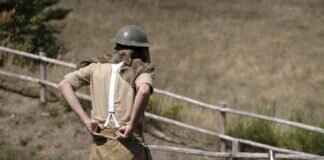A major power outage has hit southeastern France, disrupting traffic and briefly halting events at the Cannes Film Festival as the prestigious event prepared to hand out its top prize.
In southeastern France on Saturday, a major power outage caused chaos, disrupting traffic and briefly halting events at the Cannes Film Festival. About 160,000 households in the Alpes-Maritimes department found themselves without electricity after a high-voltage line fell on Saturday morning. The electricity network operator RTE reported the incident, revealing that the outage occurred just hours after a fire at an electrical substation near Cannes had already weakened the grid.
The Cannes Film Festival organizers confirmed that the power outage affected the early activities of Saturday, causing a temporary halt. Despite the unexpected turn of events, the Palais des Festivals, which is the main venue on the Croisette, managed to switch to an independent power supply to ensure the continuation of scheduled events and screenings, including the Closing Ceremony. The cause of the outage remained unknown at that stage, but restoration efforts were already in progress. However, screenings at the Cineum, one of the festival’s satellite venues, had to be briefly suspended as a result of the power disruption.














